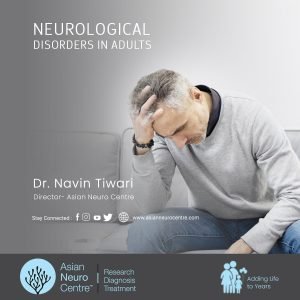- Have any questions?
- 911 12345 29
- info@asianneurocentre.com
Neurological Disorders in Adults, Symptoms, Causes, Treatment, Preventing
Neurological Disorders in Children, Symptoms, Treatment – Asian Neuro Centre
March 28, 2023Can Acute Spinal Cord Injury be Cured? – Asian Neuro Centre
April 8, 2023Neurological Disorders in Adults, Symptoms, Causes, Treatment, Preventing
- Causes of Neurological Disorders
- chronic neurological conditions list
- Common Neurological Disorders
- common neurological disorders in elderly
- genetic neurological disorders in adults
- is adhd a neurological disorders in adults
- list of neurological disorders in adults
- most common neurological disorders in adults
- most common neurological disorders list
- Neurological Disorders
- Neurological Disorders in adults
- neurological disorders in adults. any that causes sever itching
- neurological disorders list
- neurological disorders symptoms
- neurological disorders treatment
- neurological symptoms not to ignore
- Preventing Neurological Disorders
- progressive neurological disorders
- rare neurological disorders
- rare neurological disorders in adults
- rare neurological disorders in adults pain
- signs of neurological disorders in adults
- Symptoms of Neurological Disorders
- symptoms of neurological disorders in adults hillary
- Treatment of Neurological Disorders
- types of neurological disorders in adults
- What are the major neurological diseases?
- what are the top 10 neurological diseases
- What are the top 5 neurological disorders?
- What is the most common type of neurological disorder?
- zika neurological disorders in adults
- तंत्रिका संबंधी विकार का सबसे आम प्रकार क्या है?
Neurological disorders in adults can have a profound impact on one’s quality of life. These disorders can affect the brain, spinal cord, and other nerves throughout the body.
Understanding the symptoms and causes of neurological disorders can help individuals identify potential health problems and seek appropriate treatment.
Symptoms of Neurological Disorders
- Headaches: Headaches are a common symptom of neurological disorders. They can range from mild to severe and may be accompanied by nausea, vomiting, and sensitivity to light and sound.
- Numbness and Tingling: Numbness and tingling are often symptoms of nerve damage or compression. These sensations can occur in the hands, feet, or other parts of the body.
- Seizures: Seizures are sudden, uncontrolled electrical disturbances in the brain. They can cause a wide range of symptoms, including strokes, loss of consciousness, and confusion.
- Muscle Weakness: Muscle weakness can occur as a result of neurological disorders affecting the muscles or nerves. This can lead to difficulty with movement and coordination.
- Vision Problems: Neurological disorders can also affect vision, causing blurry vision, double vision, or even blindness.

Causes of Neurological Disorders
- Trauma: Traumatic injuries to the head or spinal cord can result in neurological damage. This can lead to a range of symptoms, including headaches, numbness, and weakness.
- Infections: Infections, such as meningitis and encephalitis, can cause inflammation in the brain and spinal cord, leading to neurological damage.
- Genetics: Some neurological disorders, such as Huntington’s disease and ALS, are inherited.
- Environmental Factors: Exposure to toxins, such as lead or mercury, can cause neurological damage.
- Aging: As we age, our risk of developing neurological disorders increases. This is due in part to the natural degeneration of nerve cells in the brain and spinal cord.
Treatment of Neurological Disorders
Treatment for neurological disorders depends on the underlying cause and symptoms. In some cases, medications or physical therapy may be recommended. In more severe cases, surgery may be necessary to relieve pressure on the nerves or repair damage.
Preventing Neurological Disorders
While some neurological disorders are genetic and are less likely to be prevented, there are steps individuals can take to reduce their risk of developing neurological problems. These include:
- Wearing protective gear during sports or other activities may result in head or spinal cord injuries.
- Practicing good hygiene reduces the risk of infections that can cause neurological damage.
- Avoiding exposure to environmental toxins.
- Eating a healthy diet and getting regular exercise to maintain overall health.
Dr. Navin Tiwari
Consulting Neurologist
